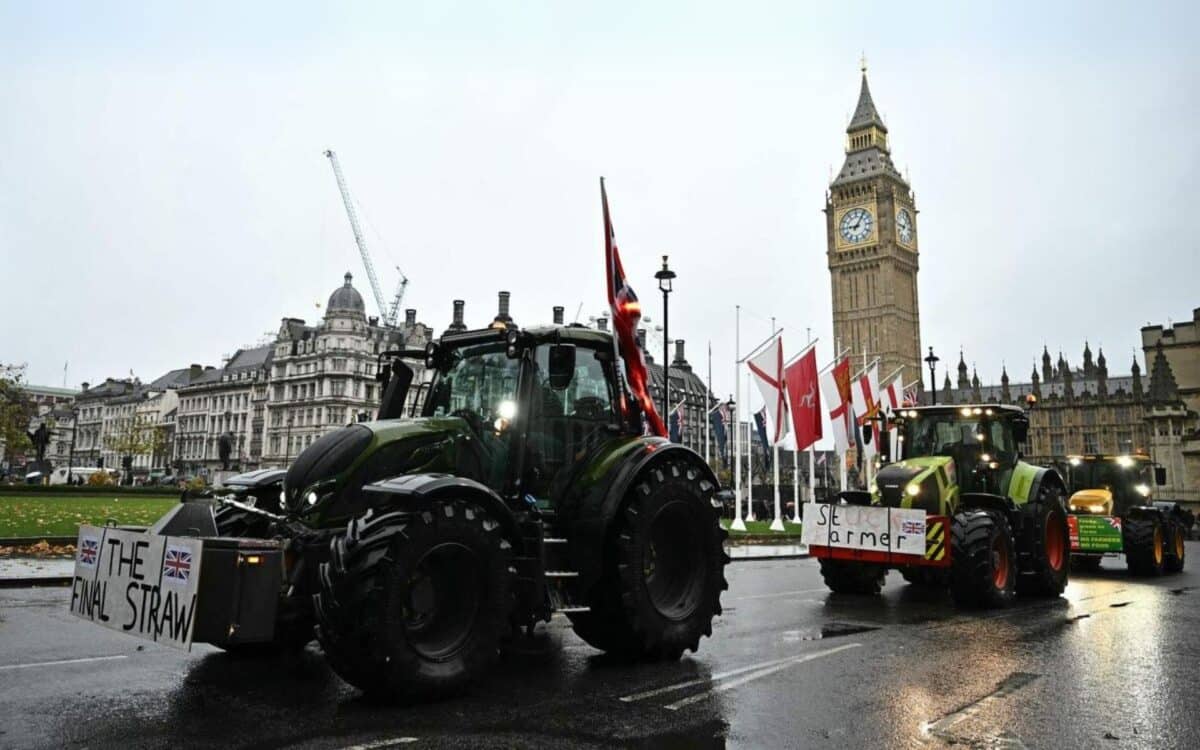The debate over proposed inheritance tax reforms for agricultural properties has stirred significant unrest among British farmers. A rally in London drew around 13,000 participants, highlighting concerns that the new measures could undermine rural communities and food security. Farmers argue that removing agricultural property relief (APR), introduced in 1984, could force families to sell land to cover tax bills, disrupting generations-old traditions and livelihoods.
Inheritance Tax Reforms Spark Widespread Concern
Farmers across the UK have expressed growing frustration over the proposed changes, fearing they will jeopardise the viability of small and medium-sized family farms. Many argue the reforms could erode the fabric of rural communities that rely heavily on generational land ownership for stability.
The new policy proposes :
- A 20% tax on farms valued at over £1 million.
- The elimination of APR, which traditionally exempted agricultural land from inheritance tax.
Farmers fear this change will :
- Lead to the fragmentation of family-owned farms.
- Increase financial strain on rural businesses.
- Threaten food production and national food security.
NFU President Tom Bradshaw strongly criticised the reforms, emphasising their potential to devastate businesses and disrupt rural life.
Political Implications of the Reforms
The proposed inheritance tax changes have sparked intense debate, drawing sharp lines between supporters of fiscal reform and advocates for rural stability. Farmers and policymakers remain locked in a battle over the long-term consequences for Britain’s agricultural sector.
Calls for a policy review
The National Farmers’ Union (NFU) has urged the Labour government to pause and reconsider these measures. In a statement, Bradshaw noted overwhelming public support for British farmers and called for sustainable solutions to mitigate the human and economic toll of the reforms.
- Over 265,000 people signed a petition opposing the changes.
- Numerous protests, including a tractor rally in Westminster, demonstrated widespread opposition.
Defending the Reforms
Chancellor Rachel Reeves defended the policy, suggesting the £1 million threshold may effectively rise to £3 million in some cases. A government spokesperson stated that the reforms would affect only 500 estates annually and include provisions for spreading tax payments over ten years, interest-free.
Safeguarding the Future of Farming
The future of British agriculture hinges on policies that balance economic reforms with the preservation of rural livelihoods. Farmers emphasise the importance of fostering resilience and sustainability to secure the nation’s food supply and protect generational traditions.
Addressing Food Security Concerns
Farmers argue that the reforms undermine their ability to invest in sustainable practices and compete fairly in global markets. Bradshaw proposed:
- Stricter standards for imported food.
- Increased public procurement of British produce.
- Enhanced support for farm infrastructure through revised planning laws.
Government Response and Investment
The Labour government highlighted its allocation of £5 billion to the farming budget over two years, positioning it as the largest investment in sustainable food production. Additionally, a 25-year farming roadmap aims to bolster rural business profitability while balancing environmental goals.
Rural Britain faces a crossroads as farmers push for policies that sustain food security without compromising livelihoods. Balancing economic reforms with rural stability remains a delicate task for policymakers.









